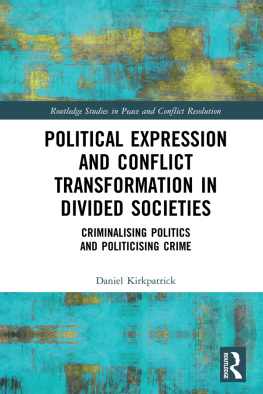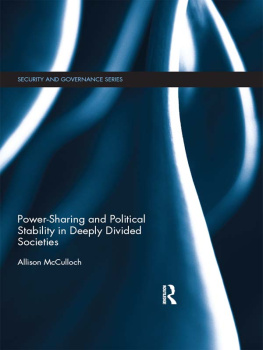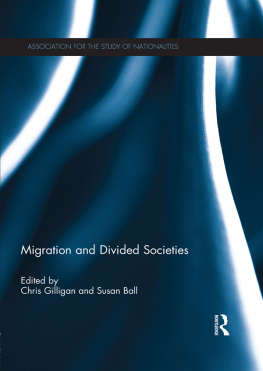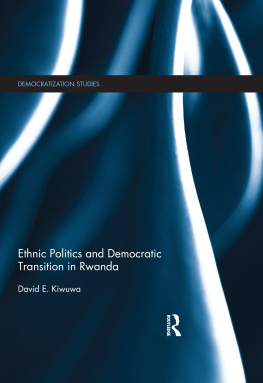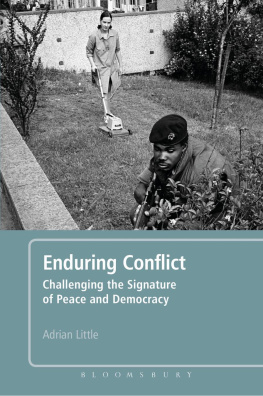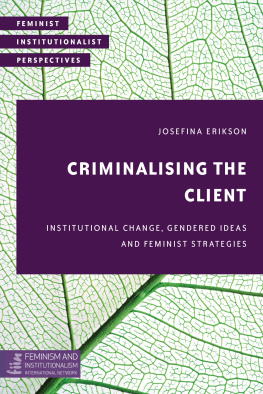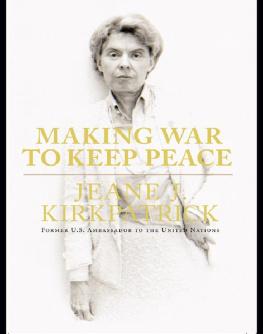Political Expression and Conflict Transformation in Divided Societies
This book considers how the social construction of crime and the criminalising of political expression impact upon different stages in a violent political conflict.
The freedom to express our political opinions is regarded as an essential human right throughout most of the world, and yet, in defence of our security, governments often place various restrictions on it. This book directly considers what these restrictions are in the context of deeply divided societies to understand how they impact upon intergroup relations in four different contexts: non-violent movements, counter-insurgency, peace negotiations, and post-settlement peacebuilding. Drawing on an extensive body of original interviews and archival material, the volume analyses this relationship through an in-depth consideration of Northern Ireland and South Africa, followed by a wider analysis of Turkey, Sri Lanka, Belgium, and Canada. The overarching argument is that the implications of criminalising political expression depend on both its target and the wider social reality it contributes towards.
This book will be of much interest to students of conflict resolution, transitional justice, law, and International Relations.
Daniel Kirkpatrick is a Research Fellow with the Conflict Analysis Research Centre, University of Kent, UK.
Routledge Studies in Peace and Conflict Resolution
Series Editors: Tom Woodhouse and Oliver Ramsbotham
University of Bradford
The field of peace and conflict research has grown enormously as an academic pursuit in recent years, gaining credibility and relevance amongst policy makers and in the international humanitarian and NGO sector. The Routledge Studies in Peace and Conflict Resolution series aims to provide an outlet for some of the most significant new work emerging from this academic community, and to establish itself as a leading platform for innovative work at the point where peace and conflict research impacts on International Relations theory and processes.
Comparing Peace Processes
Alpaslan zerdem and Roger Mac Ginty
State Domination and the Psycho-Politics of Conflict
Power, Conflict and Humiliation
Daniel Rothbart
Gender, Nationalism and Conflict Transformation
New Themes and Old Problems in Northern Ireland
Fidelma Ashe
Resolving International Conflict
Dynamics of Escalation, Continuation and Transformation
Edited by Isabel Bramsen, Poul Poder and Ole Wver
Negotiating Intractable Conflicts
Readiness Theory Revisited
Amira Schiff
Political Expression and Conflict Transformation in Divided Societies
Criminalising Politics and Politicising Crime
Daniel Kirkpatrick
For more information about this series, please visit: www.routledge.com/Routledge-Studies-in-Peace-and-Conflict-Resolution/book-series/RSPCR
First published 2020
by Routledge
2 Park Square, Milton Park, Abingdon, Oxon OX14 4RN
and by Routledge
52 Vanderbilt Avenue, New York, NY 10017
Routledge is an imprint of the Taylor & Francis Group, an informa business
2020 Daniel Kirkpatrick
The right of Daniel Kirkpatrick to be identified as author of this work has been asserted by him in accordance with sections 77 and 78 of the Copyright, Designs and Patents Act 1988.
All rights reserved. No part of this book may be reprinted or reproduced or utilised in any form or by any electronic, mechanical, or other means, now known or hereafter invented, including photocopying and recording, or in any information storage or retrieval system, without permission in writing from the publishers.
Trademark notice: Product or corporate names may be trademarks or registered trademarks, and are used only for identification and explanation without intent to infringe.
British Library Cataloguing-in-Publication Data
A catalogue record for this book is available from the British Library
Library of Congress Cataloging-in-Publication Data
Names: Kirkpatrick, Daniel, (Lecturer in politics and international
relations), author.
Title: Political expression and conflict transformation in divided societies :
criminalising politics and politicising crime / Daniel Kirkpatrick.
Description: 1. | New York : Routledge, 2019. | Series: Routledge studies
in peace and conflict | Includes bibliographical references and index.
Identifiers: LCCN 2019024561 (print) | LCCN 2019024562 (ebook) |
ISBN 9780367336325 (hardback) | ISBN 9780429323201 (ebook)
Subjects: LCSH: Criminal justice, Administration ofMoral and ethical
aspects. | Political crimes and offenses. | Threats. | Social conflict. |
Conflict management.
Classification: LCC HV7419 .K57 2019 (print) | LCC HV7419 (ebook) |
DDC 364.1/31dc23
LC record available at https://lccn.loc.gov/2019024561
LC ebook record available at https://lccn.loc.gov/2019024562
ISBN: 978-0-367-33632-5 (hbk)
ISBN: 978-0-429-32320-1 (ebk)
Typeset in Times New Roman
by Apex CoVantage, LLC
Dedicated to my heavenly father
It has been a great privilege to write this book and it would not have been possible without the support and guidance of so many friends, family, and colleagues to whom I am greatly indebted. I would like to first thank Feargal Cochrane and Harmonie Toros, who have provided invaluable support and guidance throughout the process. I am thoroughly indebted to their kindness and expertise as they guided me through my PhD research, patiently bearing with my many research tangents. I would also like to thank the many others at the University of Kent who provided critical feedback and advice on this research including Govinda Clayton, Philip Cunliffe, Nadine Ansorg, Ingvild Bode, Edward Morgan-Jones, Luke Abbs, and Rob Nagel. I would also like to thank the School of Politics and International Relations at the University of Kent for providing me with the necessary funding for my research through their Kent 50 scholarship, and to the Faculty of Social Sciences for their assistance with funding for fieldwork.
I am also thoroughly indebted to my wonderful wife (Ashley) for her incredible support and patient encouragement throughout. This book would never have been written without her kind and patient encouragement. Likewise, I greatly appreciated the support of my wider family, not least for their assistance and understanding in my numerous fieldwork visits to Northern Ireland.
I would also like to thank the Linen Hall Library in Belfast, Historical Research Archive at the University of Witwatersrand, and the Parliamentary Library in Cape Town for their assistance in providing archival materials. The librarians provided much needed guidance as I trawled through the source material that they oversaw. Likewise, my heartfelt thanks go to all those who took time out of their busy lives to be interviewed as part of this research. Without them this book would not have been realised. To name them all would be impossible, and to name a few would be unfair, so I have decided instead to thank you all as a whole (though I specifically thank Coiste Na nIarchimi who required me to do so before being interviewed). You have all greatly enriched my understanding of criminalisation, challenging my own assumptions, and inspiring what now follows (though all mistakes are my own).

